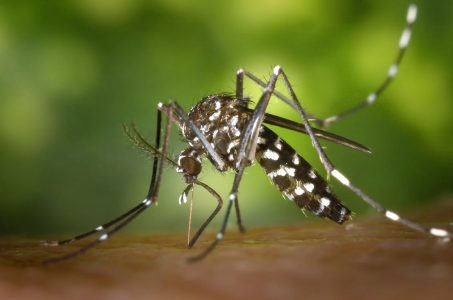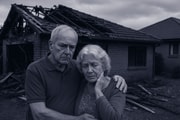Health officials raise red flags after unexpected illness hits a favourite tropical destination
By
Maan
- Replies 1
Tropical getaways are often seen as a place to unwind—but not all holiday headlines bring good news.
One popular destination among Aussie travellers has recently come under the spotlight for an emerging health concern.
Authorities have now taken action after a spate of cases raised red flags.
A health alert was issued in a Pacific holiday hotspot after authorities confirmed a cluster of dengue fever cases.
The Cook Islands Ministry of Health declared an official outbreak following seven confirmed cases over an 18-day period.
The infections were all linked to Rarotonga, the country’s main island, with no reports yet from the outer islands of the Pa Enua.
Australian travellers—many of whom favour the Cook Islands for tropical escapes—were urged to take mosquito precautions while visiting.
The Australian government advised people to wear insect repellent and protect themselves against mosquito bites.
Dengue fever is transmitted through specific mosquito species, making personal protection essential in tropical environments.
‘Dengue fever is mostly imported into Australia by travellers—if a mosquito bites an infected person, that mosquito can become a carrier.’
Outbreaks within Australia typically appeared in north Queensland.
The illness can range in severity from mild to life-threatening, with symptoms including fever, chills, headache, muscle and joint pain, swollen glands, nausea, and a faint red rash.
According to Health Direct, most people recovered within a week, but severe cases could require hospital treatment.
Some individuals have died from dengue fever complications in the past.
Severe symptoms, which might emerge days after the initial illness, included repeated vomiting, bleeding, and blood in vomit.
Anyone concerned about symptoms was advised to speak with a doctor.
‘People who have any dengue fever symptoms and are concerned for their health should contact their doctor.’
Those experiencing serious illness were told to call Triple Zero in Australia or seek emergency services overseas.
‘Anybody feeling extremely unwell should contact Triple Zero in Australia, or emergency health services overseas.’
To better understand the risks associated with this mosquito-borne illness, it's important to know how it spreads and what symptoms to watch for.
Watch the video below to learn more about dengue fever, its causes, and how it's treated.
Source: Youtube/Medical Centric

With this recent health alert in a favourite travel spot, how will you change your holiday plans? Let us know your thoughts in the comments.
One popular destination among Aussie travellers has recently come under the spotlight for an emerging health concern.
Authorities have now taken action after a spate of cases raised red flags.
A health alert was issued in a Pacific holiday hotspot after authorities confirmed a cluster of dengue fever cases.
The Cook Islands Ministry of Health declared an official outbreak following seven confirmed cases over an 18-day period.
The infections were all linked to Rarotonga, the country’s main island, with no reports yet from the outer islands of the Pa Enua.
Australian travellers—many of whom favour the Cook Islands for tropical escapes—were urged to take mosquito precautions while visiting.
The Australian government advised people to wear insect repellent and protect themselves against mosquito bites.
Dengue fever is transmitted through specific mosquito species, making personal protection essential in tropical environments.
‘Dengue fever is mostly imported into Australia by travellers—if a mosquito bites an infected person, that mosquito can become a carrier.’
Outbreaks within Australia typically appeared in north Queensland.
The illness can range in severity from mild to life-threatening, with symptoms including fever, chills, headache, muscle and joint pain, swollen glands, nausea, and a faint red rash.
According to Health Direct, most people recovered within a week, but severe cases could require hospital treatment.
Some individuals have died from dengue fever complications in the past.
Severe symptoms, which might emerge days after the initial illness, included repeated vomiting, bleeding, and blood in vomit.
Anyone concerned about symptoms was advised to speak with a doctor.
‘People who have any dengue fever symptoms and are concerned for their health should contact their doctor.’
Those experiencing serious illness were told to call Triple Zero in Australia or seek emergency services overseas.
‘Anybody feeling extremely unwell should contact Triple Zero in Australia, or emergency health services overseas.’
To better understand the risks associated with this mosquito-borne illness, it's important to know how it spreads and what symptoms to watch for.
Watch the video below to learn more about dengue fever, its causes, and how it's treated.
Source: Youtube/Medical Centric
Key Takeaways
- The Cook Islands declared a dengue fever outbreak with seven cases on Rarotonga.
- Australian travellers were advised to use insect repellent to avoid mosquito bites.
- Dengue symptoms range from mild fever to severe complications requiring hospital care.
- People with symptoms were urged to contact a doctor or emergency services if very unwell.
With this recent health alert in a favourite travel spot, how will you change your holiday plans? Let us know your thoughts in the comments.








